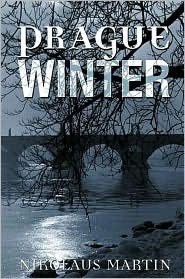

具体描述
'In the whole history of war,' he wrote to Churchill, 'there has never been such an undertaking.' Those who took part in the great cross-Channel invasion, whether soldier, sailor or airman, would never forget the sight. It was by far the largest invasion fleet ever known. Nor, of course, would the German defenders alerted at the last moment on the Normandy coasts.
The very scale of the undertaking and its meticulous planning were unprecedented, but although the beachheads were established as planned, it soon became clear that the next stage of the battle would be far more difficult than anyone had imagined. The thick hedgerows of Normandy were ideal for the defender, and the Germans, especially the Waffen-SS divisions, fought with cunning and a desperate ferocity. As they made their way inland, the British, Canadian and American forces became involved in battles whose savagery was often comparable to the Eastern Front.
Casualties began to mount and so did the tension between the principal commanders on both sides. French civilians, caught in the middle of these battlefields or under Allied bombing, endured terrible suffering. Even the joys of Liberation had their darker side. The war in northern France marked not just a generation but the whole of the post-war world, profoundly influencing relations between America and Europe.
Making use of overlooked and new material from over thirty archives in half a dozen countries, D-Day is the most vivid and well-researched account yet of the battle of Normandy. As with Stalingrad and Berlin - The Downfall, Antony Beevor's gripping narrative conveys the true experience of war.
作者简介
Antony Beevor was educated at Winchester and Sandhurst, where he studied under John Keegan. A regular officer with the 11th Hussars, he left the Army to write. He has published four novels, and seven works of non-fiction. They include The Spanish Civil War; Inside the British Army; Crete—The Battle and the Resistance, which was awarded a Runciman Prize, and Paris After the Liberation, 1944-1949 (written with his wife Artemis Cooper). He has also been contributed to several books including The British Army, Manpower and Society into the Twenty-First Century, edited by Hew Strachan and to a forthcoming book on the Eastern Front in World War II in honour of the late John Erickson.
Stalingrad, first published in 1998, won the first Samuel Johnson Prize, the Wolfson Prize for History and the Hawthornden Prize for Literature in 1999. The British edition, a number one bestseller in both hardback and paperback, has so far sold over 600,000 copies, and the book has been translated into twenty-four languages. The Fall of Berlin 1945, published in 2002, was accompanied by a BBC Timewatch programme on his research into the subject. The book will also be appearing in twenty-four foreign editions. It was a No. 1 Bestseller in seven countries apart from Britain, and in the top five in another nine countries. The two books between them have already sold over two million copies. His latest book, The Mystery of Olga Chekhova, describes the experiences of the Chekhov and Knipper families from before the Russian revolution until after the Second World War.
Antony Beevor was made a Chevalier de l'Ordre des Arts et Lettres by the French government in 1997 and was elected a Fellow of the Royal Society of Literature in 1999. He was the 2002-2003 Lees-Knowles lecturer at Cambridge. In 2003, he received the first Longman-History Today Trustees' Award. He is a member of the management committee of the Society of Authors and of the London Library. He is also Visiting Professor at the School of History, Classics and Archaeology at Birkbeck College, University of London. In September 2003, he took over from Philip Pullman as Chairman of the Society of Authors. In July 2004, he received an Honorary Degree of Doctor of Letters from the University of Kent. He is currently a judge of the British Academy Book Prize and a member of the Samuel Johnson Prize steering committee.
From Stalingrad to Berlin
When I read one particular account of a German officer captured at Stalingrad, I knew what the next book had to be. This officer, along with a group of exhausted survivors from the 297th Infantry Division, were being marched through the streets of Stalingrad - they could manage only a painful shuffle due to frostbite and starvation - when a Russian colonel pointing to the ruins around, yelled: 'That's how Berlin is going to look!'
Russian armies advancing on Germany in 1944 and 1945 measured their advance both from Stalingrad, the furthest point of German advance as well as the perceived turning point of the war, and by the distance still left to 'The Lair of the Fascist Beast' - the capital of the Reich.
The links between the two great battles were intriguing. The 8th Guards Army, the largest of Zhukov's formations attacking Berlin, was the old 62nd Army from Stalingrad. Its brutally effective commander, General Chuikov, who bestirred his officers to greater activity with hard punches, found however, that close-quarter combat in Berlin was rather different from what he had dubbed 'the Stalingrad Academy of Street-Fighting'. the Russians were taken aback by the almost suicidal bravery of fifteen-year-old Hitler Youth armed with Panzerfaust anti-tank launchers.
Hitler, on the other hand, living almost entirely off wild delusion, persuaded himself that Berlin would be a Stalingrad in reverse, with his Ninth and Twelfth Armies cutting off the Russian attackers in a surprise pincer. He refused to acknowledge that they utterly lacked the material, physical, and moral strength to launch any sort of counter-attack. And when the Russians fought their way into the centre of Berlin, they found the Chancellery of the German Reich defended by the Scandinavian SS Nordland Division and the remnants of the French SS Charlemagne. These foreign diehards were among the last to lay down their arms. It was strange to hear of such experiences from the surviving battalion commander in a darkened Parisian apartment: an old man who still receives death threats.
But the Fall of Berlin, even more than the Battle of Stalingrad, is a terrible story of civilian as well as military suffering. The annihilation of East Prussia in January and February 1945 provided an atrocious warning of Russian revenge. German villagers who had not been allowed by the Nazi authorities to flee until it was too late, found themselves treated without mercy. Soviet troops were allowed to rape, loot and destroy virtually at will. When I read in a Moscow archive Beria's reports to Stalin on the mass suicides of East German civilians, it was quite clear that neither man had any intention of curbing their troops. Far more shocking documents were to emerge later in another archive, and I must admit that I am still unable to make up my mind about the real causes of such behaviour, especially when so many Russian soldiers and officers showed genuine kindness for German women and children. Russian troops, especially those liberated from the abominable treatment which they had received in German prisoner of war camps, had much to avenge, but some of their actions almost defy belief as well as logic. The whole debate over 'rape as a weapon of war' s far from straightforward, as I think the book will show.
Several other explosive issues also emerged during the course of research in Moscow archives, but I prefer not to say anything at this stage, partly because I do not want anything to be taken out of context, but also because I need to do more research and double-checking from other directions.
Berlin is a much larger subject, both in size and scope, than Stalingrad was, and to cover the ground in a similar time - three and a half years - is a considerable challenge. There have been many more archives to visit (in France, Britain, Sweden and the United States, as well as of course Russia and Germany) and many more people to interview, both civilians and soldiers. I am quite honestly terrified of the task of turning our mountains of photocopied documents and tape-recordings into a coherent whole, but I hope that if the structure is right, then things will fall into place. The objective is to deliver the manuscript by the end of October 2001 so that the book can come out in May 2002, exactly four years after the publication of Stalingrad.
目录信息
读后感
我猜测这书是有许多助手参与的,因为好几处描述重复,比如英军用倒插步枪挂钢盔来标识伤员。仍然保持Beevor强项,在大量资料中刨出有趣的细节和小故事堆在一起。但是不如斯大林格勒和柏林那两本读来顺畅。
评分这本书我过去已经做了一点介绍,而且在英国畅销书非小说类精装本排行榜上占据榜首好几个星期,但还是想再推荐一次。 这部差不多600页厚的书,我用一点一点的零碎时间慢慢地读,终于读到第26章(全书共30章),盟军已经突破德国在诺曼底半岛的防线,下一步将是消灭残部,向巴黎进...
评分这本书我过去已经做了一点介绍,而且在英国畅销书非小说类精装本排行榜上占据榜首好几个星期,但还是想再推荐一次。 这部差不多600页厚的书,我用一点一点的零碎时间慢慢地读,终于读到第26章(全书共30章),盟军已经突破德国在诺曼底半岛的防线,下一步将是消灭残部,向巴黎进...
评分这本书我过去已经做了一点介绍,而且在英国畅销书非小说类精装本排行榜上占据榜首好几个星期,但还是想再推荐一次。 这部差不多600页厚的书,我用一点一点的零碎时间慢慢地读,终于读到第26章(全书共30章),盟军已经突破德国在诺曼底半岛的防线,下一步将是消灭残部,向巴黎进...
评分我猜测这书是有许多助手参与的,因为好几处描述重复,比如英军用倒插步枪挂钢盔来标识伤员。仍然保持Beevor强项,在大量资料中刨出有趣的细节和小故事堆在一起。但是不如斯大林格勒和柏林那两本读来顺畅。
用户评价
Non-fiction at its best. Unput-downable all through the 500+ pages.
评分不给星了,看一半就失去兴趣了,不是题材的问题,而是作者的写作角度,并没有纪实的直观感,还不如看BBC的二战实录材料有效。
评分不给星了,看一半就失去兴趣了,不是题材的问题,而是作者的写作角度,并没有纪实的直观感,还不如看BBC的二战实录材料有效。
评分不给星了,看一半就失去兴趣了,不是题材的问题,而是作者的写作角度,并没有纪实的直观感,还不如看BBC的二战实录材料有效。
评分不给星了,看一半就失去兴趣了,不是题材的问题,而是作者的写作角度,并没有纪实的直观感,还不如看BBC的二战实录材料有效。
相关图书
本站所有内容均为互联网搜索引擎提供的公开搜索信息,本站不存储任何数据与内容,任何内容与数据均与本站无关,如有需要请联系相关搜索引擎包括但不限于百度,google,bing,sogou 等
© 2025 book.quotespace.org All Rights Reserved. 小美书屋 版权所有




















